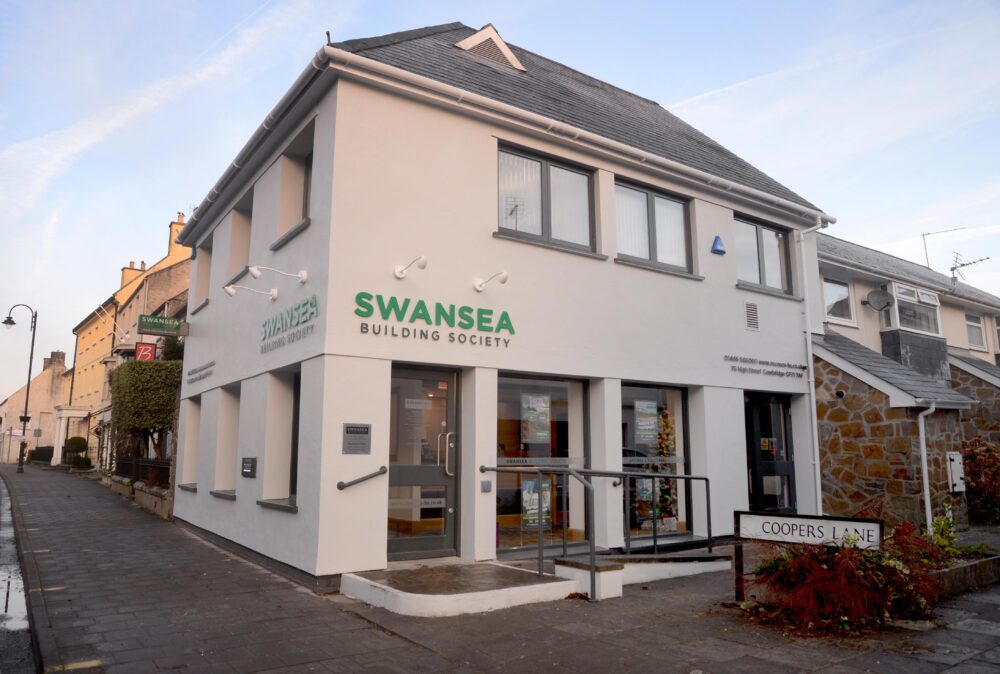Swansea Building Society’s Cowbridge branch celebrates five years trading this month, as the society continues to grow its customer base in South East Wales and expand its workforce across the region.
The Cowbridge branch, which opened during December 2017, has now reached £164 million in mortgage balances and over £61 million in savings balances with over 3,000 savings accounts – a particularly impressive figure considering the length of time the branch has been in operation.
When the Society first opened the branch, it employed just seven staff at the branch with two further staff covering the east region. Now the branch has 11 staff based in Cowbridge, with an additional four employed across the East Wales / border region, two of which are based at the Society’s office in Abergavenny.
The Society attributes the success of its Cowbridge branch to its East Wales team, which includes: East Wales Area Manager/Head of Savings & Marketing, Richard Miles; Business Development Manager, Martin Lewis; Cowbridge Branch Manager, David Osterland; Business Development Manager, Dan Goulding; and their assistants.
The team’s proactive approach and strong networking have given it a greater understanding of the needs of the local community – making significant contributions to the branch’s rapid growth in mortgage and savings balances.
Swansea Building Society’s flexible approach to lending, particularly for properties outside of the standard criteria of other lenders, is now widely appreciated throughout Wales and the Welsh Border area, and this provides a solid platform for future growth.
Richard Miles, East Wales Area Manager/Head of Savings & Marketing, Swansea Building Society, said:
“We are delighted to celebrate a very successful first five years at our Cowbridge branch. During this time, we have seen our workforce across the East Wales/ border region nearly double, and our balance sheets – mortgages and savings – pass several significant milestones.
“This success has come about thanks to the culmination of several years of investment, the hard work and dedication of our staff, and our commitment to opening and not closing branches. As we move forward, we hope to help even more people plan their finances successfully and secure the funding they need for their dream home.”
